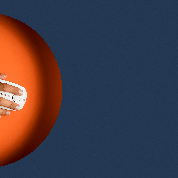Browse
Navigating Context
Posted on: #iteachmsu



Posted by
over 4 years ago

ARTICLE: Strategies for ADHD: How Counselors Help Today’s Students Succeed
https://counseling.steinhardt.nyu.edu/blog/adhd-strategies-for-students/
https://counseling.steinhardt.nyu.edu/blog/adhd-strategies-for-students/
Navigating Context
Posted on: #iteachmsu



Posted by
over 4 years ago

The following organizational supports are particularly useful. Students should be taught to use these tools through teacher modeling and guided practice with feedback before being expected to use them more independently.
Reference vedio : https://link.springer.com/article/10.1007/s10902-018-0026-8
Reference vedio : https://link.springer.com/article/10.1007/s10902-018-0026-8
Navigating Context
Posted on: #iteachmsu



Posted by
over 4 years ago

Second post
: Artificial intelligence (AI) refers to the simulation of human intelligence in machines that are programmed to think like humans and mimic their actions. The term may also be applied to any machine that exhibits traits associated with a human mind such as learning and problem-solving.
: Artificial intelligence (AI) refers to the simulation of human intelligence in machines that are programmed to think like humans and mimic their actions. The term may also be applied to any machine that exhibits traits associated with a human mind such as learning and problem-solving.
Navigating Context
Posted on: #iteachmsu



Posted by
over 4 years ago

The Science of Posture
I’ll confess up front: I have terrible posture. It’s been bad since I was in high school at least, and probably for even longer than that. It’s one of those things I keep in the back of my mind as something I know I should do, but never get around to, like eating more vegetables and sending more postcards.
It’s really interesting to explore commonly-held assumptions for the Buffer blog, because I often find out surprising things. Researching how our posture affects us was no different. If you’re like me and struggle to sit up straight when you know you should, you might like this post.
I’ll confess up front: I have terrible posture. It’s been bad since I was in high school at least, and probably for even longer than that. It’s one of those things I keep in the back of my mind as something I know I should do, but never get around to, like eating more vegetables and sending more postcards.
It’s really interesting to explore commonly-held assumptions for the Buffer blog, because I often find out surprising things. Researching how our posture affects us was no different. If you’re like me and struggle to sit up straight when you know you should, you might like this post.
I’ll confess up front: I have terrible posture. It’s been bad since I was in high school at least, and probably for even longer than that. It’s one of those things I keep in the back of my mind as something I know I should do, but never get around to, like eating more vegetables and sending more postcards.
It’s really interesting to explore commonly-held assumptions for the Buffer blog, because I often find out surprising things. Researching how our posture affects us was no different. If you’re like me and struggle to sit up straight when you know you should, you might like this post.
I’ll confess up front: I have terrible posture. It’s been bad since I was in high school at least, and probably for even longer than that. It’s one of those things I keep in the back of my mind as something I know I should do, but never get around to, like eating more vegetables and sending more postcards.
It’s really interesting to explore commonly-held assumptions for the Buffer blog, because I often find out surprising things. Researching how our posture affects us was no different. If you’re like me and struggle to sit up straight when you know you should, you might like this post.
I’ll confess up front: I have terrible posture. It’s been bad since I was in high school at least, and probably for even longer than that. It’s one of those things I keep in the back of my mind as something I know I should do, but never get around to, like eating more vegetables and sending more postcards.
It’s really interesting to explore commonly-held assumptions for the Buffer blog, because I often find out surprising things. Researching how our posture affects us was no different. If you’re like me and struggle to sit up straight when you know you should, you might like this post.
I’ll confess up front: I have terrible posture. It’s been bad since I was in high school at least, and probably for even longer than that. It’s one of those things I keep in the back of my mind as something I know I should do, but never get around to, like eating more vegetables and sending more postcards.
It’s really interesting to explore commonly-held assumptions for the Buffer blog, because I often find out surprising things. Researching how our posture affects us was no different. If you’re like me and struggle to sit up straight when you know you should, you might like this post.
I’ll confess up front: I have terrible posture. It’s been bad since I was in high school at least, and probably for even longer than that. It’s one of those things I keep in the back of my mind as something I know I should do, but never get around to, like eating more vegetables and sending more postcards.
It’s really interesting to explore commonly-held assumptions for the Buffer blog, because I often find out surprising things. Researching how our posture affects us was no different. If you’re like me and struggle to sit up straight when you know you should, you might like this post.
I’ll confess up front: I have terrible posture. It’s been bad since I was in high school at least, and probably for even longer than that. It’s one of those things I keep in the back of my mind as something I know I should do, but never get around to, like eating more vegetables and sending more postcards.
It’s really interesting to explore commonly-held assumptions for the Buffer blog, because I often find out surprising things. Researching how our posture affects us was no different. If you’re like me and struggle to sit up straight when you know you should, you might like this post.
I’ll confess up front: I have terrible posture. It’s been bad since I was in high school at least, and probably for even longer than that. It’s one of those things I keep in the back of my mind as something I know I should do, but never get around to, like eating more vegetables and sending more postcards.
It’s really interesting to explore commonly-held assumptions for the Buffer blog, because I often find out surprising things. Researching how our posture affects us was no different. If you’re like me and struggle to sit up straight when you know you should, you might like this post.
I’ll confess up front: I have terrible posture. It’s been bad since I was in high school at least, and probably for even longer than that. It’s one of those things I keep in the back of my mind as something I know I should do, but never get around to, like eating more vegetables and sending more postcards.
It’s really interesting to explore commonly-held assumptions for the Buffer blog, because I often find out surprising things. Researching how our posture affects us was no different. If you’re like me and struggle to sit up straight when you know you should, you might like this post.
I’ll confess up front: I have terrible posture. It’s been bad since I was in high school at least, and probably for even longer than that. It’s one of those things I keep in the back of my mind as something I know I should do, but never get around to, like eating more vegetables and sending more postcards.
It’s really interesting to explore commonly-held assumptions for the Buffer blog, because I often find out surprising things. Researching how our posture affects us was no different. If you’re like me and struggle to sit up straight when you know you should, you might like this post.
I’ll confess up front: I have terrible posture. It’s been bad since I was in high school at least, and probably for even longer than that. It’s one of those things I keep in the back of my mind as something I know I should do, but never get around to, like eating more vegetables and sending more postcards.
It’s really interesting to explore commonly-held assumptions for the Buffer blog, because I often find out surprising things. Researching how our posture affects us was no different. If you’re like me and struggle to sit up straight when you know you should, you might like this post.
I’ll confess up front: I have terrible posture. It’s been bad since I was in high school at least, and probably for even longer than that. It’s one of those things I keep in the back of my mind as something I know I should do, but never get around to, like eating more vegetables and sending more postcards.
It’s really interesting to explore commonly-held assumptions for the Buffer blog, because I often find out surprising things. Researching how our posture affects us was no different. If you’re like me and struggle to sit up straight when you know you should, you might like this post.
I’ll confess up front: I have terrible posture. It’s been bad since I was in high school at least, and probably for even longer than that. It’s one of those things I keep in the back of my mind as something I know I should do, but never get around to, like eating more vegetables and sending more postcards.
It’s really interesting to explore commonly-held assumptions for the Buffer blog, because I often find out surprising things. Researching how our posture affects us was no different. If you’re like me and struggle to sit up straight when you know you should, you might like this post.
I’ll confess up front: I have terrible posture. It’s been bad since I was in high school at least, and probably for even longer than that. It’s one of those things I keep in the back of my mind as something I know I should do, but never get around to, like eating more vegetables and sending more postcards.
It’s really interesting to explore commonly-held assumptions for the Buffer blog, because I often find out surprising things. Researching how our posture affects us was no different. If you’re like me and struggle to sit up straight when you know you should, you might like this post.
I’ll confess up front: I have terrible posture. It’s been bad since I was in high school at least, and probably for even longer than that. It’s one of those things I keep in the back of my mind as something I know I should do, but never get around to, like eating more vegetables and sending more postcards.
It’s really interesting to explore commonly-held assumptions for the Buffer blog, because I often find out surprising things. Researching how our posture affects us was no different. If you’re like me and struggle to sit up straight when you know you should, you might like this post.
Navigating Context
Posted on: #iteachmsu


Posted by
over 4 years ago
HPB | Live updates on New Coronavirus (COVID-19) outbreakwww.hpb.health.gov.lk
Official LIVE updates and the latest news from the Sri Lankan Government on the Coronavirus outbreak, and basic protective measures against the new virus.
Official LIVE updates and the latest news from the Sri Lankan Government on the Coronavirus outbreak, and basic protective measures against the new virus.
Navigating Context
Posted on: #iteachmsu



Posted by
almost 5 years ago

When soldiers are teamed with robots, the human need to interfere may negate the benefits of robotic assistance, a new US military project has discovered. But letting military artificial intelligence proceed without human supervision raises troubling ethical questions.
Read more: https://www.newscientist.com/article/2261842-military-robots-perform-worse-when-humans-wont-stop-interrupting-them/#ixzz6gJKPa7Tv
Read more: https://www.newscientist.com/article/2261842-military-robots-perform-worse-when-humans-wont-stop-interrupting-them/#ixzz6gJKPa7Tv
Navigating Context
Posted on: #iteachmsu



Posted by
almost 5 years ago

How do scientists study ecosystems and grapple with real-world conservation questions?
Learn about ecology and ecosystem dynamics using a systems thinking lens. Authored by world-class experts at the cutting edge of conservation biology, this six-week online course examines how scientists study various ecosystems around the world—from Mozambique's Gorongosa National Park, to the Hudson River in New York, to Caribbean coral reefs. Learners will investigate the complex array of factors that inform management efforts, and grapple with real-world conservation questions, such as whether an ecosystem can recover from disruption and what role humans can, and should, play in that recovery.
Learn about ecology and ecosystem dynamics using a systems thinking lens. Authored by world-class experts at the cutting edge of conservation biology, this six-week online course examines how scientists study various ecosystems around the world—from Mozambique's Gorongosa National Park, to the Hudson River in New York, to Caribbean coral reefs. Learners will investigate the complex array of factors that inform management efforts, and grapple with real-world conservation questions, such as whether an ecosystem can recover from disruption and what role humans can, and should, play in that recovery.
Navigating Context
